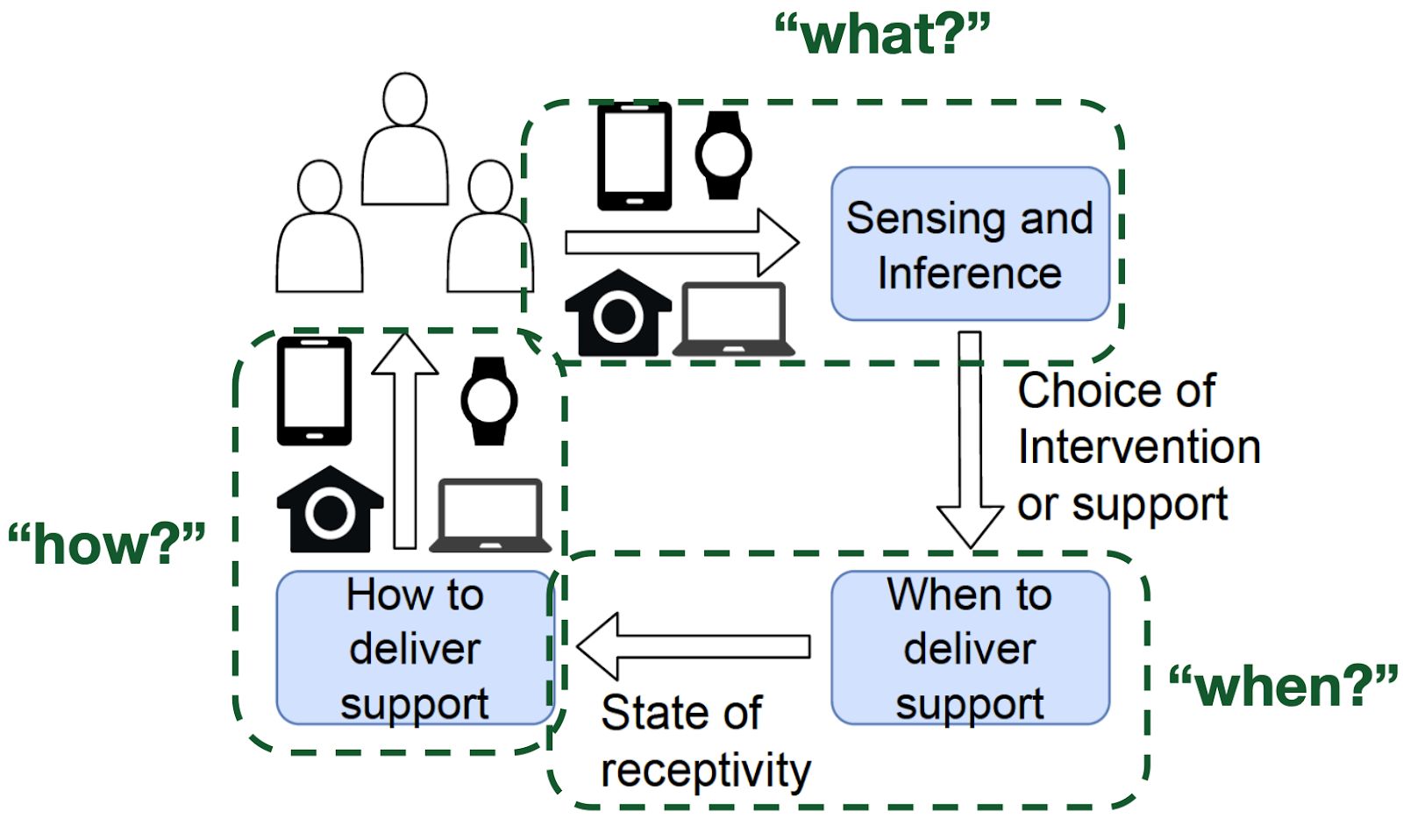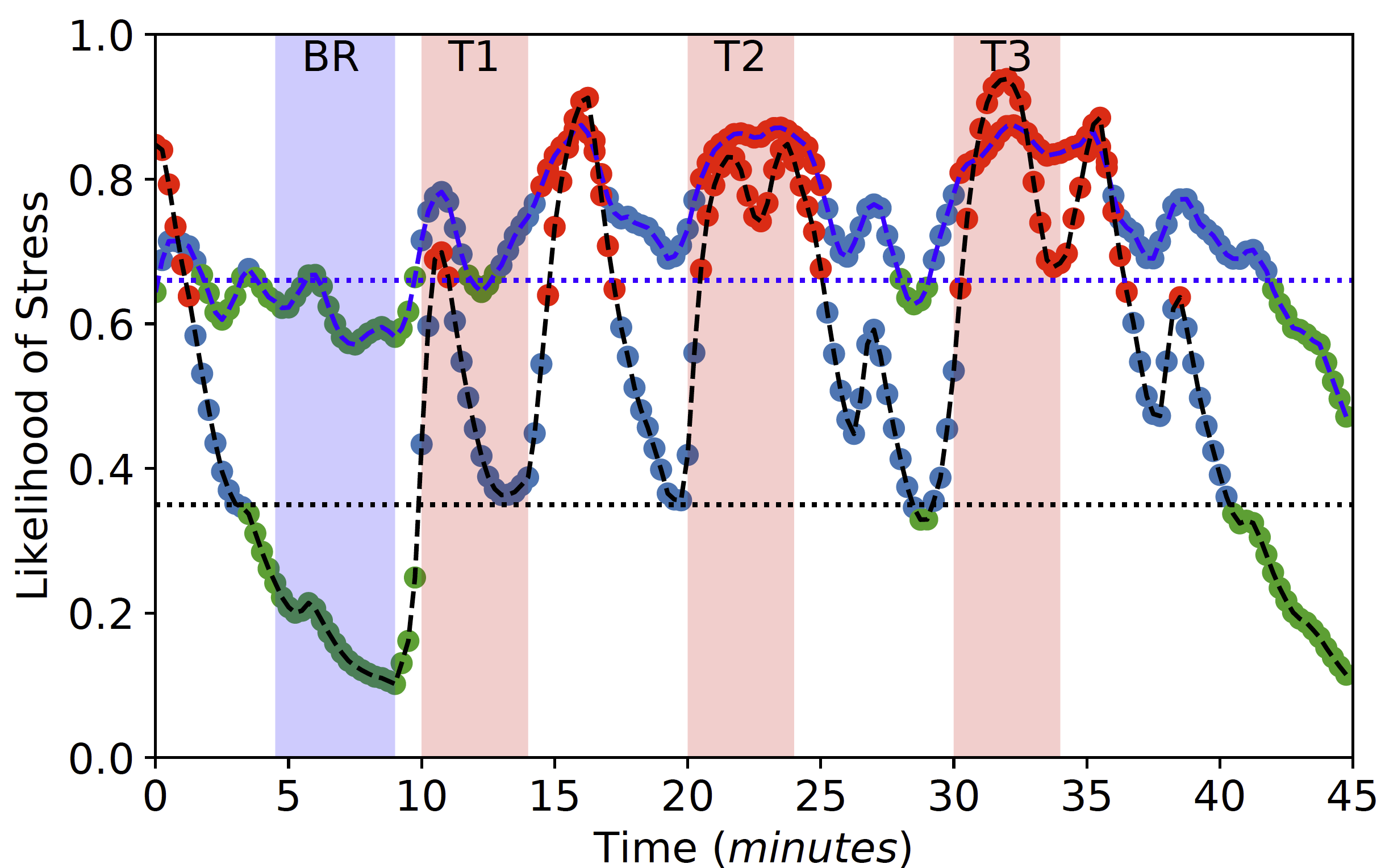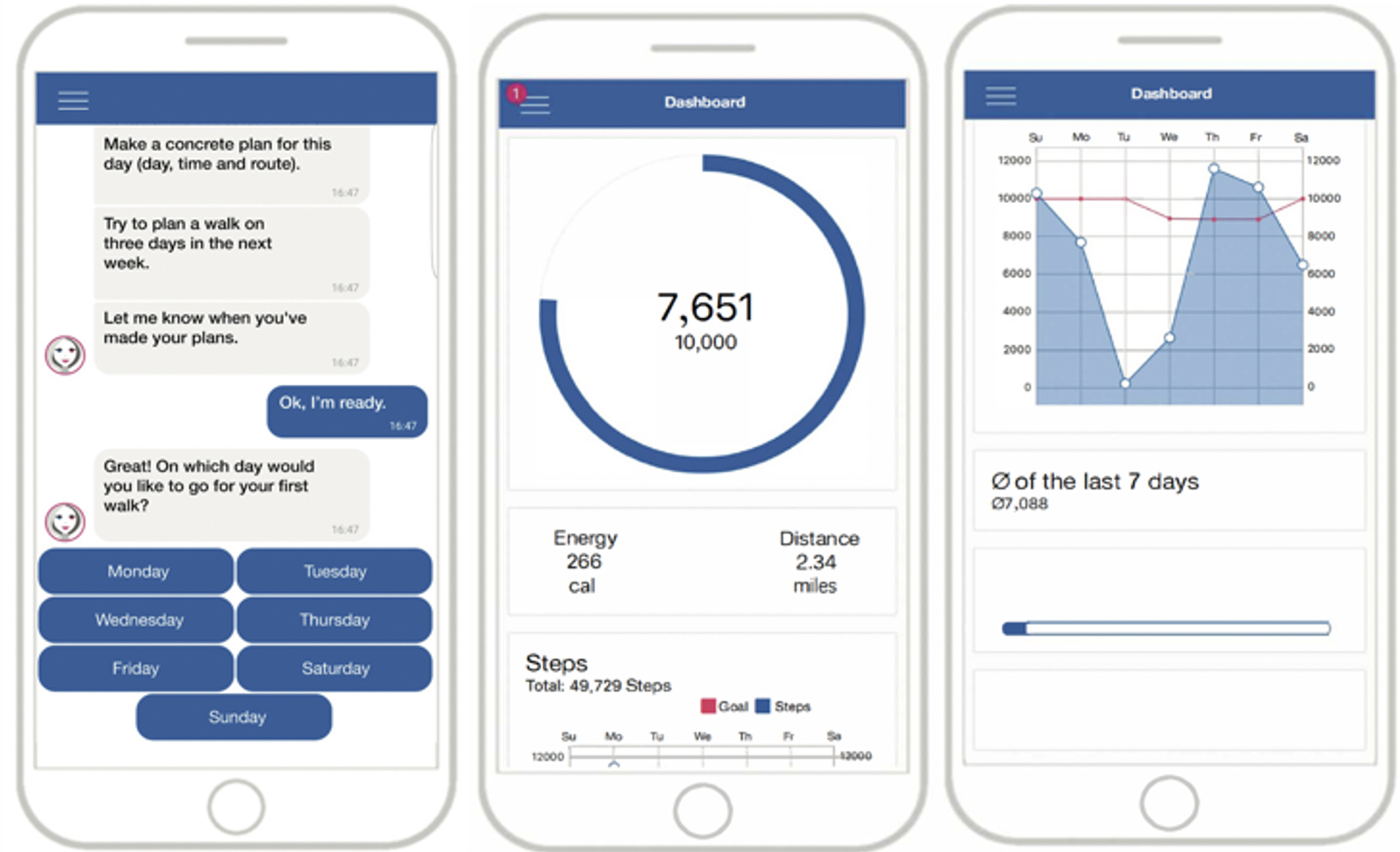(February 2024) Dorsa gave a paper presentation at the ML4CMH workshop at AAAI 2024
Dorsa presented her paper titled “Learning to Generate Context-Sensitive Backchannel Smiles
for Embodied AI Agents with Applications in Mental Health
Dialogues” at the ML4CMH workshop located at AAAI 2024.
continue reading...
UbiWell Lab
The Ubiquitous Computing for Health and Well-being (UbiWell) Lab is an interdisciplinary research group at the Khoury College of Computer Sciences and the Bouvé College of Health Sciences at Northeastern University.
We work on developing data-driven solutions to enable effective sensing and interventions for mental- and behavioral-health outcomes with mobile and ubiquitous technologies.
Research Areas
Our interdisciplinary team works at the intersection of mobile/wearable sensing, data science, human-centered computing, and behavioral science.
We work on exploring and advancing the complete "lifecycle" of mental- and behavioral-health sensing and intervention, which includes (a) accurately sensing and detecting a mental or behavioral health condition, like stress and opioid use; (b) after detecting a particular condition, determining the right time to deliver the intervention or support, such that the user is most likely to be receptive to the interventions provided; and (c) choosing the best intervention delivery mechanism and modality to ensure just-in-time delivery and reachability.

A simplified representation of the sensing to intervention lifecycle.
Current Projects
Causal modeling for physiological stress

We are working on various projects to leverage multimodal data and understand the contextual and behavioral factors that lead to physiological stress, and evaluate its association with the perception of stress.
Predicting relapse during OUD treatment

We are working on a longitudinal study to detect at-risk indicators, e.g., stress, craving, and mood, among patients undergoing Opioid Use Disorder (OUD) treatment, using passively collected contextual and sensor data from smartphones and wearables.
States-of-receptivity for digital health interventions

We have multiple projects currently underway to better evaluate the contexts where people are willing and able to engage with and use digital health interventions. These range from behavior-change interventions in free-living situations to interventions during specific scenarios, e.g., driving.
News
(January 2024) Varun gave a keynote at the NetHealth workshop at COMSNETS 2024
Varun was invited to give a keynote at the NetHealth workshop located at COMSNETS 2024.
continue reading...
(September 2023) Two new PhD Students join the group
We have two new PhD students joining the lab this Fall: Akshat and Dorsa
continue reading...
(July 2023) SAMHSA Report on Digital Therapeutics in Behavioral Health highlights our work.
Our collaborative work with Dartmouth’s Center for Technology and Behavioral Health (CTBH), Kaiser Permanente, and IBM Research, on using smartphones and wearables to detect relapse in Opioid Use Disorder treatment was highlighted in the Substance Abuse and Mental Health Services Administration’s (SAMHSA) July 2023 Advisory, Digital Therapeutics for Management and Treatment in Behavioral Health.
continue reading...
(July 2023) ACM GetMobile highlights our work on receptivity to digital health interventions.
ACM GetMobile highlighted our work on detecting receptivity for digital health interventions in their June 2023 issue.
continue reading...